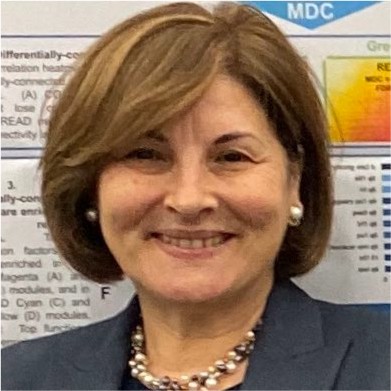Professional organization encourages hospitals to share genomic data in effort to more rapidly advance potential precision medicine applications
The Association for Molecular Pathology (AMP), one of the United States’ largest molecular diagnostics professional societies, issued a position statement urging hospitals to support the sharing of precision medicine data. AMP hopes to use this appeal to increase the availability of data on genetic variations to improve development of the emerging field of precision medicine.
Precision medicine relies heavily on understanding genetic variations between individuals and how these variations affect both the development of diseases and responses to treatment. By better recognizing these genetic differences, hospitals and health clinics will be able to provide treatments that are more targeted for specific individuals and even recognize individual risk factors for diseases before they occur.
The AMP’s position statement comes at a time of recent draft legislation and “bipartisan support” for the creation of a new advanced research agency to cure cancer, called the Advanced Research Projects Agency for Health (ARPA-H)—and currents of a “highly anticipated” 21st Century Cures 2.0 bill that follows up on the original Cures Act. Deep into the discussion draft of Cures 2.0 are two points of interest for the precision medicine community and hospital CEOs considering a venture:
• Create new capabilities (e.g., technologies, data resources, disease models), and
• Support high-risk exploration that could establish entirely new paradigms.
Whether to inform infectious disease patterns or oncology care, both of these aims require data sharing capability, an area in which clinical laboratories have struggled to meet minimum requirements, according to ClinGen, a National Institutes of Health (NIH)-funded resource dedicated to building an authoritative central resource that defines the clinical relevance of genes and variants for use in precision medicine and research.
Health Information Sharing Essential for Precision Medicine Programs
One barrier to the rapid growth of precision medicine discoveries and applications identified by the AMP is the siloing of healthcare information by organizations, including data that could be used to enhance precision medicine knowledge and research. Decreased availability of this information generated by clinical molecular pathology laboratories and other stakeholders inhibits the ability of researchers to access data that could significantly improve the data sets that are currently being used for precision medicine initiatives.
AMP is a professional organization that includes over 2,500 physicians, doctoral scientists, and medical technologists who practice in various disciplines of molecular diagnostics. The AMP has significant influence on molecular diagnostics, and the data of AMP members alone would add a tremendous contribution to precision medicine research if it were made publicly available.

President, Association for Molecular Pathology and Chair of the George Washington School of Medicine Department of Pathology
“AMP calls upon all relevant individuals and organizations, including hospitals, academic medical centers, commercial diagnostic laboratories, patient organizations, policymakers, and more, to support the sharing of molecular genetic variant data,” said Antonia R. Sepulveda, MD, PhD, AMP President and Professor and Chair of the George Washington School of Medicine Department of Pathology, in a recent press release. “Robust data sharing will help address health inequities by improving our understanding of the types and frequencies of variants in different subpopulations and could soon contribute to the development of life-changing vaccines and therapies.”
Four Precision Medicine Recommendations for Hospitals and Other Stakeholders
AMP provides four specific recommendations for hospitals and other stakeholders to consider:
1. Addressing barriers that might be encountered to sharing clinical variant data;
2. Standardizing test requisition forms used by clinical laboratories to help ease submission for common data elements;
3. Establishing convenient and practical data submission processes for public databases; and
4. For policymakers specifically, providing incentives for variant data sharing.
The AMP position paper cites the global response to COVID-19 as an example of how improved data sharing practices resulted in rapid advancements in multiple fields of technology, quickly leading to clinical applications. “Using a similar approach, more universal sharing of human genomics sequence data for somatic and inherited disorders is expected to improve diagnosis and clinical management of affected patients, particularly for rare disorders,” the position statement explains.
Subpopulation Health Holds Focus
Another important consideration that AMP presents is that increased sharing of genomic data has the potential to address health inequities by providing more comprehensive data on underrepresented subpopulations. By promoting the availability of genomic data, hospitals can further the development of precision medicine for minority groups.
Ultimately, the stated goal of this position paper is to outline “a series of recommendations to help achieve better diagnostic testing, treatments, and therapies, which will enhance patient care and advance the field of precision medicine.”
Hospital leaders stand to gain two potential benefits by improving the public ability of their organizations’ genomic data. First, the AMP’s encouragement for policymakers to incentivize variant data sharing could positively impact hospitals that are early in taking steps toward this end. Second, increased data sharing could more rapidly advance the field of precision medicine, resulting in significant reduction in the time it takes for new precision medicine applications to become available.
—Caleb Williams
Related Information:
Association for Molecular Pathology Position Statement: Variant Data Sharing
Clinical Laboratories Meeting Minimum Requirements for Data Sharing to Support Quality Assurance
